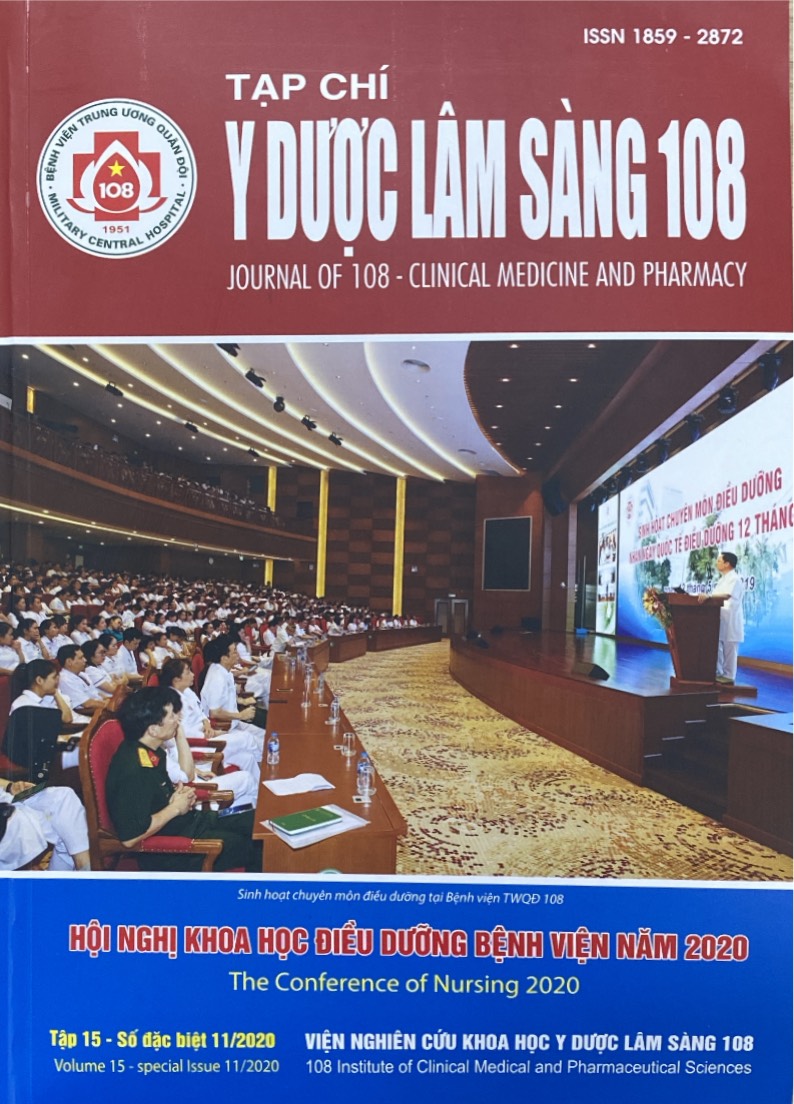Nutritional risk measured by NRS-2002 in patients with acute heart failure
Main Article Content
Keywords
Abstract
Objective: To investigate some clinical, subclinical features and nutritional risk in acute heart failure patients at 108 Military Central Hospital. Subject and method: 45 patients with acute heart failure in Cardiovascular Intensive Care Unit from June 2020 to August 2020. Assessmented some risk factors, outcomes, number of days hospitalized, NRS-2002. The relationship between NRS-2002 score and some clinical and subclinical parameters was investigated. Result: Mean age of acute heart failure patients was 75.51 ± 10.89 years, 64.4% males. The mortality rate after 30 days of follow-up was 6.7%. The majority of patients had a reduction in food intake in the last 1 week (77.8%) and weight loss within 3 months (71.1%). All patients had NRS-2002 scores ≥ 3. Mean NRS-2002 score of patients with acute heart failure was 4.82 ± 1.17, with a high risk of malnutrition (NRS-2002 ≥ 5) accounting for 62.2%. Mean age of patients at high risk of malnutrition was 80.21 ± 8.54 years, significantly higher than those with low risk of malnutrition (p<0.01). Patients with high NRS-2002 scores tended to be thinner than patients with low NRS-2002 scores, p<0.01. Patients with high NRS-2002 scores tented to be anemia (p<0.01), decreased plasma transferin concentrations (p<0.05). Conclusion: All patients with acute cardiovascular disease are at risk of malnutrition and most at high risk of malnutrition. Nutritional risk is associated with to age, anemia status and has negative correlation with BMI and plasma transferin concentrations.
Article Details
References
2. Singer P, Blaser AnR, Berger MM et al (2019) ESPEN guideline on clinical nutrition in the intensive care unit. Clinical nutrition (Edinburgh, Scotland) 38(1): 48-79.
3. Tevik K, Thürmer H, Husby MI et al (2016) Nutritional risk is associated with long term mortality in hospitalized patients with chronic heart failure. Clin Nutr ESPEN 12: 20-29.
4. Zhang X, Zhang X, Zhu Y et al (2020) Predictive value of nutritional risk screening 2002 and mini nutritional assessment short form in mortality in Chinese Hospitalized Geriatric Patients. Clin Interv Aging 15: 441-449.
 ISSN: 1859 - 2872
ISSN: 1859 - 2872
